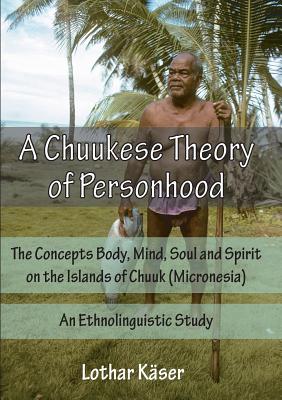A Chuukese Theory of Personhood: The Concepts Body, Mind, Soul and Spirit on the Islands of Chuuk (Micronesia) - An Ethnolinguistic Study

A Chuukese Theory of Personhood: The Concepts Body, Mind, Soul and Spirit on the Islands of Chuuk (Micronesia) - An Ethnolinguistic Study
People in non-western societies conceive of personhood and personality in ways which overlap with but are not at all identical with western (European, American) conceptions. In their desire to comprehend the concept of man belonging to different societies and cultures ethnographers mostly started from the features defining their own concept of man, including particularly their own concept of the soul, and looked for comparable elements in the culture they studied. In this way they did indeed find material which when pieced together produced something which had similarities with their own concept of man. But they were for the most part blind to other features which defined over and above that notions of body, soul, mind and spirit in the cultural setting they studied. Moreover their knowledge of the language was limited. Often the result was a description containing serious gaps, possibly only contributing non-essentials, falsely evaluating essentials, and in extreme cases leading to the conclusion that the foreign concept of body, soul, mind and spirit was somehow identical with that of Europe and the West.
This study about the inhabitants of Chuuk (Federated States of Micronesia) in the Western Pacific is different. It starts strictly from the features defining Chuukese concepts of personhood using the vocabulary and other features of their language in order to work out the so-called emic categories the islanders use to make sense of the world which is their living space.
The author is professor of anthropology. He spent five years of fieldwork in the South Pacific, and has visited Africa, Asia and South America for research on many occasions.
PRP: 206.58 Lei
Acesta este Prețul Recomandat de Producător. Prețul de vânzare al produsului este afișat mai jos.
185.92Lei
185.92Lei
206.58 LeiLivrare in 2-4 saptamani
Descrierea produsului
People in non-western societies conceive of personhood and personality in ways which overlap with but are not at all identical with western (European, American) conceptions. In their desire to comprehend the concept of man belonging to different societies and cultures ethnographers mostly started from the features defining their own concept of man, including particularly their own concept of the soul, and looked for comparable elements in the culture they studied. In this way they did indeed find material which when pieced together produced something which had similarities with their own concept of man. But they were for the most part blind to other features which defined over and above that notions of body, soul, mind and spirit in the cultural setting they studied. Moreover their knowledge of the language was limited. Often the result was a description containing serious gaps, possibly only contributing non-essentials, falsely evaluating essentials, and in extreme cases leading to the conclusion that the foreign concept of body, soul, mind and spirit was somehow identical with that of Europe and the West.
This study about the inhabitants of Chuuk (Federated States of Micronesia) in the Western Pacific is different. It starts strictly from the features defining Chuukese concepts of personhood using the vocabulary and other features of their language in order to work out the so-called emic categories the islanders use to make sense of the world which is their living space.
The author is professor of anthropology. He spent five years of fieldwork in the South Pacific, and has visited Africa, Asia and South America for research on many occasions.
Detaliile produsului










